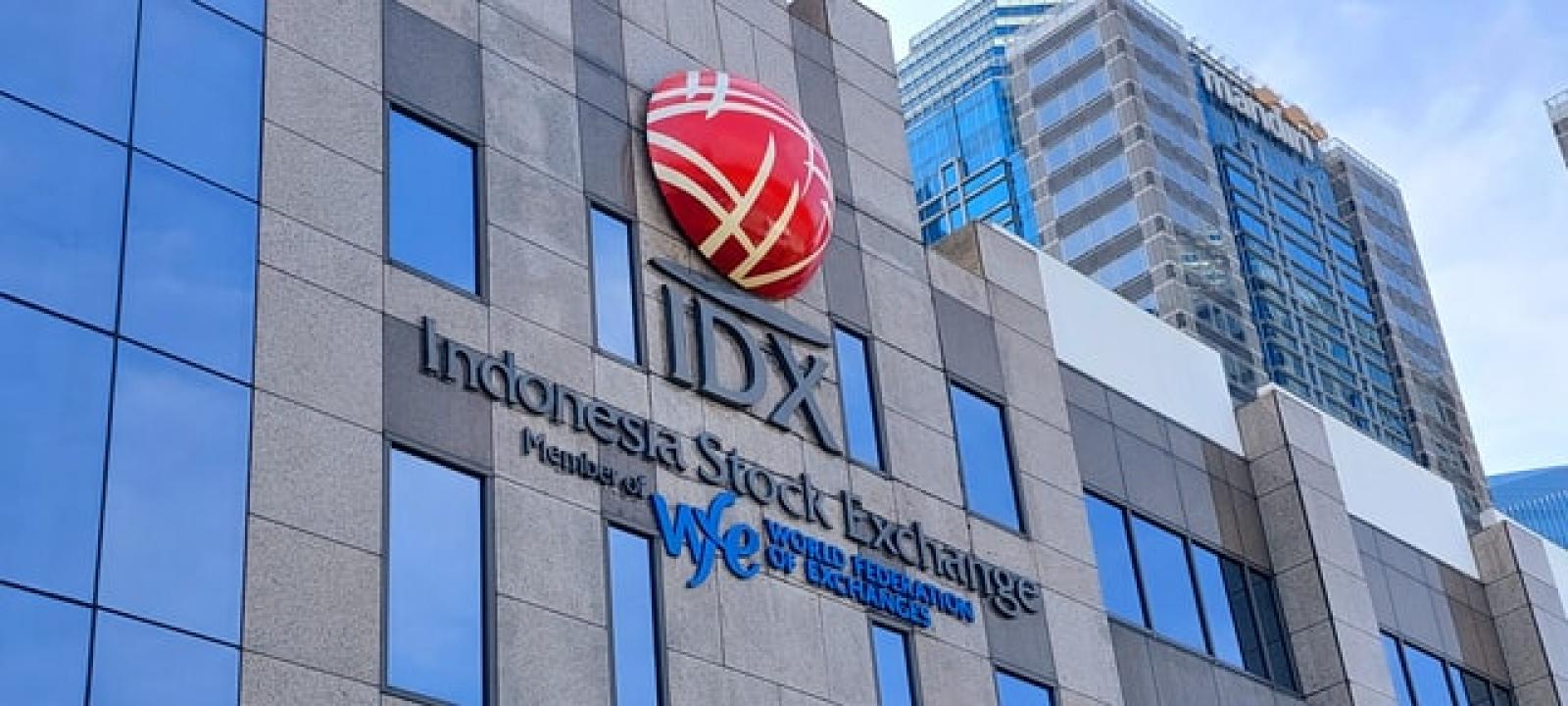Universal Logistics Holdings, Inc. (NASDAQ:ULH) has announced its earnings for the fourth quarter of 2023, delivering a solid performance with $0.81 per share on operating revenues of $390.2 million. Despite a competitive market and various operational headwinds, the company achieved the second-best fourth quarter on record for operating income. The contract logistics segment was a standout performer with increased active value-added programs, while the dedicated transportation group maintained stable revenue growth. However, the agent-based trucking segment and company-managed brokerage services faced challenges, with declines in load count and revenue per load.
Key Takeaways
- Universal Logistics Holdings reported a consolidated net income of $21.4 million.
- Earnings per share stood at $0.81 on operating revenues of $390.2 million.
- Contract logistics segment showed strong performance, while dedicated transportation group saw stable revenue growth.
- Agent-based trucking and company-managed brokerage services experienced declines.
- The company declared a quarterly dividend of $0.105 per share, payable on April 1, 2024.
- Full-year guidance projects revenues of $1.8 billion to $1.9 billion with an 8% to 10% margin.
- The next earnings call is scheduled for April 26, 2024.
Company Outlook
- Universal Logistics expects Q1 2024 top-line revenues between $400 million and $420 million.
- Plans for significant investments in 2024, including two large contract logistics projects.
- The company is evaluating and optimizing underperforming segments for better margins.
- A focus on high-margin contract logistics and improving efficiency in transportation operations is central to the strategy.
Bearish Highlights
- Operating income decreased to $2.5 million, down from $5.7 million the previous year.
- Agent-based trucking and company-managed brokerage services faced a challenging market environment.
Bullish Highlights
- Strong performance in the contract logistics segment with an increase in active value-added programs.
- Class 8 production levels exceeded the previous year, indicating robust sales pipeline.
- The company remains focused on delivering long-term value and growth.
Misses
- A decline in load count and revenue per load in the agent-based trucking segment.
- Revenue drop in company-managed brokerage services due to market challenges.
Q&A Highlights
- The company plans to capitalize on additional freights after the slower period.
- Operations will be optimized, consolidated, and made more efficient, especially in the intermodal space.
Universal Logistics Holdings continues to navigate a mixed market landscape, balancing strong segments with those facing challenges. The company\'s commitment to strategic growth and operational efficiency positions it to leverage opportunities in the coming quarters. Shareholders can look forward to the next earnings call on April 26, 2024, for further updates on the company\'s progress.
Pro Insights
Universal Logistics Holdings, Inc. (ULH) has shown resilience in a tough market, as evidenced by their latest earnings report. To provide a deeper understanding of the company\'s financial health and investment potential, we turn to real-time data and expert analysis from Pro.
Pro Data metrics indicate that Universal Logistics Holdings has a market capitalization of approximately $883.15 million, with a P/E ratio sitting at a modest 9.12. This suggests that the company is trading at a low earnings multiple, which could be attractive to value investors. Additionally, the company has maintained a steady dividend yield of 1.25%, demonstrating a commitment to returning value to shareholders.
One of the Pro Tips highlights that the company has maintained dividend payments for 14 consecutive years, which underscores its financial stability and reliability for income-focused investors. Moreover, the stock\'s strong return over the last three months, at 40.54%, reflects the market\'s positive reception to the company\'s recent performance and strategic initiatives.
Investors looking for an in-depth analysis of Universal Logistics Holdings can find additional Pro Tips by visiting https://www.investing.com/pro/ULH. There are currently more tips available, which can offer further insights into the company\'s valuation, financial health, and growth prospects. To access these insights, readers can use the coupon code PRONEWS24 to get an additional 10% off a yearly or biyearly Pro and Pro+ subscription.
Full transcript - Universal Trucklo (ULH) Q4 2023:
Operator: Hello, and welcome to Universal Logistics Holdings Fourth Quarter 2023 Earnings Conference Call. At this time, all participants are in a listen-only mode. [Operator Instructions] A brief question-and-answer session will follow the formal presentation. During the course of this call, management may make forward-looking statements based on their best view of the business as seen today. Statements that are forward-looking relate to Universal\'s business objectives or expectations and can be identified by the use of the words such as believe, expect, anticipate and project. Such statements are subject to risks and uncertainties, and actual results could differ materially from those expectations. As a reminder, this conference is being recorded. It is now my pleasure to introduce your host, Mr. Tim Phillips, Chief Executive Officer; Mr. Jude Beres, Chief Financial Officer; and Mr. Steven Fitzpatrick, Vice President of Finance and Investor Relations. Thank you. Mr. Phillips, you may begin.
Tim Phillips: Thank you, Gary, and good morning, and welcome to Universal Logistics Holdings 2023 fourth quarter earnings call. Once again, Universal\'s diverse service offerings continue to differentiate us in the transportation and logistics space and provide a stable earnings base for the organization in a changing trade environment. While we await a rebound in the transportation market that has been bumping along the bottom in the past few quarters, we are pleased with the continued resiliency and performance of our contract logistics segment. Being deeply rooted in our customers\' ecosystem has given us the opportunity to inject additional value, consistency and visibility into their supply chain, which in turn demonstrates our strong business proposition and affords us tremendous opportunity for growth. In 2024, it remains our goal to streamline operations within our transportation segment, focusing on cost reductions, which extend additional value to our customers while continuing to produce consistent margins that fuel our future growth. We continue to see excellent opportunities in the contract logistics space to simplify customers\' logistics complexities while simultaneously showcasing cost savings and reliability. Our people-driven solutions require great talent armed with state-of-the-art technology. I\'m extremely pleased with our build-out of the contract logistics team with excellent talent that is focused on continuous improvement in labor management, as well as blueprinting the technological needs of our customers to advance our accuracy, enhanced visibility. We continue to stress a customer-centric approach that takes best practice while outlining a very individualized solution to our customers\' specific needs. We continue to be extremely mindful of cost in our transportation businesses while we ride out the remainder of the inventory destocking and other market pressures. It is fair to say the opportunity to deeply evaluate costs has uncovered opportunities that will remain fundamental as we step out of the current environment. Each of our transportation businesses has outlined an operating strategy for 2024 that is focused on customer expansion and loan growth while contemplating lane optimization and service standards. We will remain vigilant on managing our controllable costs and improving operational efficiency in every aspect of our business. The outlook for 2024 remains a bit murky with a variety of signals from various market verticals. While we\'re not ready to predict a rise in volume from the current environment, we can explore potential pathways through the lens of our customers. The prognostication throughout the earnings season favors an uptick to second half of 2024, which we also believe to be a possibility. But we need to see a meaningful movement in imports to help support the story. Import drayage moves in our network were flat sequentially, but did show a slight uptick over Q4 of 2022. We will closely watch the load count in the first part of the year to support any material inventory restocking cycle that could be a catalyst for returning our transactional trucking businesses to their historic margins. Initial indications in the automotive space point to production cadence similar to 2023. Class 8 trucks, which had a robust year in 2023 and expectations are for some reduction in truck production in 2024. Projections remain a mixed bag with our heavy equipment agriculture customers, but we do expect solid contributions to 2024 revenue stream. Universal continues to build on our current customer footprint, leveraging our sales efforts across the enterprise. Sales leadership has strategically outlined the blueprint of cross-sell opportunities between our various operating segments. Our pipeline of new customer prospects remain robust with both new and cross-sell opportunities. We are extremely excited with sales opportunities within our current customer base as we look to build our transportation and logistics network in Mexico. A renewed focus on nearshoring has confirmed our need to expand with the current customers at a nimble pace. We remain committed to solving the customers\' most complicated issues while evaluating the opportunity for fit within our various operating networks. As previously mentioned, our diversified operating footprint continues to produce balanced results. Contract logistics led the way, producing exceptional results, while our asset-based truckload business with a variable cost model delivered muted results in Q4. Although lagging our expectations, we remain confident in the foundation of our intermodal and company-managed brokerage segments. Any incremental volumes and improvement in efficiencies will further drive the results in these businesses. Leadership has outlined strong 2024 strategic plans for the organization and are deeply focused on executing. Now for the quarter. In yesterday\'s release, Universal reported 2023 fourth quarter earnings of $0.81 per share on a total operating revenues of $390.2 million. Our operating margins fell in line with Q4 estimates while operating revenues came in slightly above. Although behind our Q4 2022 results, Q4 2023 was the second best fourth quarter on record for operating income, and 2023 as a whole was the second best year ever for operating income and EPS. Now for some color on each of our service lines. In our contract logistics segment, the number of active value-added programs continue to increase and finished the quarter at 71 programs. We continue to launch new programs in a variety of verticals. We continue to have demand from both existing and new customers for inbound material velocity solutions. We were able to spotlight our technology and people in real time while outlining the value of a single provider between transportation and warehouse management. 2023 Class 8 production levels exceeded the previous year with year-end figures in the neighborhood of 336,000 units versus 315,000 units in 2022. While the SAAR remained very similar to both Q4 and 2023 as a whole, Q4 production of the plants we service were negatively affected by the UAW strike and estimated to have cost the company somewhat in the neighborhood of $2.2 million in mixed operating income. The overall impact of the UAW strike against the big three was less impactful than expected as many of the plants we service were not impacted. Our sales pipeline is filled with prospective customers in a variety of verticals, including automotive, agriculture and Class 8 trucks. We did successfully launch one major customer in Mexico in Q4 and are prepared for several launches in January or had several launches in January of 2024. The dedicated transportation group remained very stable throughout 2023, providing high velocity platform that syncs closely with complex inbound material manufacturing needs. Our dedicated segment is focused on yard management, local shuttles and regional work. Over the past three years, we have had organic-focused growth strategy. We have made significant investments in new tractors and trailing equipment that has given us the ability to scale and attract drivers, up over 57% from the end of 2021. We remain confident in our operating model, which provides an extremely high level of service made possible by an experienced team of seasoned professionals. Revenue for the quarter was up slightly, driven by five new launches in 2023, two of which were in Q4. We are extremely excited about the Q4 launches, which continued our growth with a significant dedicated automotive opportunity in Central Mexico, followed by a late quarter start with a large agriculture manufacturer in the southeast United States. Offsetting some of the new business revenue was a drop in operating revenue at several of our operations servicing the automotive industry. Lack of six-day operation in the UAW strike were key contributors. Our dedicated model continues to attract attention with a healthy pipeline of new opportunity and several launches slated for Q1 of 2024. Our intermodal drayage group continues to navigate a restricted import environment, as previously mentioned. Pricing and volume continues to be the storyline with slight sequential deterioration of revenue, which is driven by seasonality. While load count was up 1.8%, this was more than offset by a 19.9% decline in revenue per load ex fuel as the market remained extremely competitive. The segment will also be watching the drama in the Red Sea and the increased sale time as it affects ships\' arrivals and potential inventory levels. The Panama Canal continues to give shippers problems with transiting the route due to water levels. In the ever-changing geopolitical landscape, our intermodal franchise is ready to serve our customers\' needs on the East Coast or on the West Coast. Overall, top-line revenue was down 30.6% due to depressed freight rates as well as non-driver related accessorial. Accessorial continued their steep decrease as ocean volumes remained in deficit and supply chains were fluid. Accessorial charges declined over 61% or $13.8 million and fuel surcharge declined 42% or $9.4 million. While we have made positive traction with our Southern California operation, it continues to be a drag on overall results. Southern California rates remained muted and were challenged sequentially in Q4. We continue to optimize the fleet size and driver base, while evaluating our lanes, our port turn times and our driver utilization. Losses in a number of our California operations negatively impacted our EPS by $0.13 per share. Despite these current headwinds, our long-term strategy of having a strong West Coast Intermodal precedent remains undeterred. We are preparing to introduce new trucks to all of our California operations in 2024, which will offer additional truck efficiencies and repair savings. The new truck order will also include a handful of electric trucks that we will begin incorporating into our operations in the latter part of the year. Our drayage sales pipeline remains full quality opportunities which will continue to be bid in an extremely restrictive pricing environment. We do believe our intermodal franchise has a competitive advantage as we have an expansive portfolio of operating terminals, parking and a large fleet of company-owned chassis. Our agent-based trucking segment continued to face headwinds in our van and flatbed modes during the last quarter of the year. Our wind transportation also saw a significant and seasonal falloff in revenue from Q3. Industrial goods led the slide in the open deck sector with steel and metals down sequentially, but up slightly Q4 over Q4 of \'22. Consumer goods led the decline on the van side. Overall, load count was down 3.9% and the revenue per load was down 8.6% to $1,673 per load. The agent-based, overall drop, the agent-based brokerage services experienced the steepest fall off, down over 18% compared to 2022. Top-line revenue of $75.2 million was down 15.5% for the quarter, while operating income decreased $3.3 million to $2.5 million compared to $5.7 million last year. Continued flat and band headwinds coupled with a seasonal drop in wind transportation move led to the decreases. Our agent-based model continues to contribute to the bottom-line with its variable cost structure and entrepreneurial spirit. Company managed brokerage saw top-line revenue drop 29% in the quarter to $28.1 million as headwinds continue in the truckload market, a sluggish freight environment with muted peak season led to an extremely competitive spot rate environment in the quarter. Spot loads for the quarter were very low, making up roughly 20% of the overall load count. Many opportunities are at or below breakeven from a profit standpoint. We continue to align our pricing and selection of freight to give the operations team the best opportunity to make money while shielding load count. As previously mentioned, depressed pricing, coupled with increased carrier operational costs has made the model very difficult to reach margin expectations. Operating revenue per load decreased 15.7% to $1,419 per load and the load count was down 14.4%. Gross margin increased sequentially to 11.8%, but was off from Q4 2022 by almost 2%. Small carriers continue to keep their heads above water, but has remained elevated because of higher truck costs. We have bid roughly 25% of our book of business at various stages in Q4 and are awaiting final awards. Another 25% of our book will be bid in Q1 of 2024. So far, pricing on renewal bids have been flat compared to 2023. We will continue to evaluate our Q1 bid, looking for lanes, we can optimize with our current network of carriers to create real load growth count. Finally, Universal is committed to delivering long-term value to our customers and our shareholders. We remain focused on growing our high-margin contract logistics business, which produces stable returns over a long-term contract period while welcoming what we hope to be a climb from the freight basement for our transactional transportation business as 2024 progresses. I\'m extremely thankful for the hardworking employees, contractors and agents who proudly represent Universal every day. While technology continues to enhance the customer experience, it is people who solve problems to expand and nurture relationships. Universal will continue to celebrate its diverse and creative workforce, which exudes the culture, people-driven solutions. I would now like to turn the call over to Jude for a detailed view of our financial performance.
Jude Beres: Thanks, Tim. Good morning, everyone. Yesterday, Universal Logistics Holdings reported consolidated net income of $21.4 million or $0.81 per share on total operating revenues of $390.9 million in the fourth quarter of 2023. This compares to net income of $33.4 million or $1.27 per share on total operating revenues of $458.7 million during the same period last year. Consolidated income from operations was $34.1 million for the quarter compared to $48.2 million one year earlier. EBITDA decreased $13.2 million to $54.8 million, which compares to $68 million during the same period last year. Our operating margin and EBITDA margin for the fourth quarter of 2023 are 8.7% and 14% of total operating revenues. These metrics compared to 10.5% and 14.8%, respectively, in the fourth quarter of 2022. Looking at our segment performance for the fourth quarter of 2023, in our contract logistics segment, which includes our value-add and dedicated transportation businesses, income from operations increased $1.9 million to $32.1 million on $201.3 million of total operating revenues. This compares to operating income of $30.1 million on $205.5 million of total operating revenue in the fourth quarter of 2022. Operating margins for the quarter were 15.9% of total operating revenues compared to 14.7% one year earlier. On to our intermodal segment. Operating revenues decreased $37.7 million to $85.4 million compared to $123.1 million in the same period last year. And income from operations decreased $12.1 million to an operating loss of $944,000. This compares to operating income of $11.1 million in the fourth quarter of 2022. Operating ratios for the quarter were 101.1% versus 91% last year. As mentioned in Tim\'s comments, our intermodal segment\'s operating results were negatively impacted by operating losses in a number of our West Coast operations. These losses totaled $4.5 million, impacting segment margins by 550 basis points and consolidated results by $0.13 per share. In our trucking segment, operating revenues for the quarter decreased $13.8 million to $75.2 million compared to $89 million in the same quarter last year. And income from operations decreased $3.3 million to $2.5 million. This compares to operating income of $5.7 million in the fourth quarter of 2022. Operating margins for the quarter were 3.3% versus 6.5% last year. In our company-managed brokerage segment, operating revenues for the quarter decreased $11.5 million to $28.1 million compared to $39.6 million in the same quarter last year. And income from operations decreased $900,000 to operating income of $9,000. Operating margins for the quarter were close to breakeven versus 2.3% last year. On our balance sheet, we held cash and cash equivalents totaling $12.5 million and $10.8 million of marketable securities. Outstanding interest-bearing debt net of $4.5 million of debt issuance costs totaled $381.9 million at the end of the period. Excluding lease liabilities related to ASC 842, our net interest-bearing debt to reported TTM EBITDA was 1.7 times. Capital expenditures for the quarter were $48.5 million. For the full year of 2023, capital expenditures totaled $240.6 million. $124.5 million or 52% of our total CapEx for the year was for strategic real estate purchases. Based on the current operating environment, for the first quarter of 2024, we are expecting top line revenues between $400 million to $420 million and operating margins in the 8% to 10% range. For the full year, we are expecting capital expenditures to be in the $480 million to $500 million range and interest expense to come in between $30 million to $34 million. 2024 will be a year of significant investment for Universal. So, I\'d like to break down the CapEx number a little bit. Included in our estimate are two large contract logistics projects that require an upfront capital investment totaling $220 million. We anticipate making this investment over the course of 2024 in anticipation of having these programs ready for a Q1 2025 launch. These two projects account for nearly half of our total anticipated 2024 guide. We are also expecting to invest $70 million in strategic real estate purchases and facility upgrades for our terminal network. These upgrades will primarily support our intermodal operations. The remaining $200 million or so will be for rolling stock, which includes tractors and trailers as well as material handling equipment. Due to the limited availability of transportation equipment in recent years, over half of this spend is to get us back on our normal tractor replacement cycle. We anticipate using a combination of cash generated by operations, availability on our revolving lines of credit as all as equipment and real estate notes to fund our planned CapEx. Finally, Wednesday, our Board of Directors declared Universal\'s $0.105 per share regular quarterly dividend. This quarter\'s dividend is payable to shareholders of record at the close of business on March 4, 2024, and is expected to be paid on April 1, 2024. With that, Gary, we\'re ready to take some questions.
Operator: [Operator Instructions]. Our first question today is from Bruce Chan with Stifel. Please go ahead.
Bruce Chan: Hey, thank you, operator, and good morning, everyone. Tim, you talked about some of the drayage trends and the disruption coming with the Red Sea and Panama Canal issues. Just wondering if you\'ve seen any change in volume trends so far this year as a result of those issues. And then maybe just to follow-up quickly, we\'ve got some potential ILA disruptions and negotiations coming up as well. Any early conversations with customers about some of the relocation and diversion that may happen as a result?
Tim Phillips: Yeah. Thanks, Bruce. From a drayage perspective, when it relates to the Red Sea, no, we\'ve had no real hiccups from a volume standpoint. What we\'ve been told by our customers is that they understand if they\'re not going to change port routing, they\'re going to experience a longer sale time anywhere between probably 12 -- 10 to 12 days longer, and they\'re just setting themselves to absorb that as it goes so far. That\'s one area where we feel we\'re really well acclimated because if they do decide to push freight to the West Coast, we feel we have a good catch net there with all our terminals that operate up and down the West Coast to catch that potential volume that could be redirected. I would say that I have not heard a lot on the ILA potential this summer when the contract renewal for work disruption. But I would say the same thing holds true there. As our customers look at their supply chain, potentially pivot, then we\'re going to be there to catch the freight on the other coast or potentially the Gulf region if that would delay into the plan. We\'re definitely preparing ourselves, should freight shift as it kind of did when we had the ILWU disruption on the West Coast, the same thing could potentially happen here with East to West shift. So, we feel good about what we have in case to be able to service our customers.
Bruce Chan: Okay. Got it. That\'s helpful. And then maybe just a big picture question here. We\'ve had a couple of companies talking about some potential spin-offs to unlock shareholder value. When I look at your portfolio, there\'s certainly been some operational and valuation drag from some of the transactional segments on contract logistics. When you think about the portfolio, are there any thoughts or conversations happening here around potential spins or divestitures? Or is there maybe something about the integration of the businesses or the cross-selling opportunity that makes that unlikely?
Tim Phillips: No. I think we\'re positioned well. I mean, I hate to look at some of our underperforming segments right now based on just the economic environment. But I will tell you this, we continue to evaluate anything that doesn\'t give us the proper margin profile. We spoke over the last several quarters about where we think the long-term value is in the intermodal space, and we\'ll continue to optimize operations, consolidate, look for better, more efficient ways to do things. We think when we come out of this slower period, we\'re going to be ready to capitalize on and leverage additional freights as it funnels into the terminals that are already built. The brokerage environment becomes much more difficult. It\'s been a rough ride over the last part of 2023 and into \'24, but we\'re going to position that sector, that segment of the business to be successful as possible. So, there\'s no plans at this current point to do anything differently. But to give them the tools and continue to explore cross-sell opportunities, introducing other customers from other various segments into those portfolios.
Bruce Chan: Got it. That\'s great. And then maybe just a final question here. You gave some color on the margin profile or the margin expectations in the first quarter. But you also talked about some of the leadership goals for the various businesses this year. Certainly, there are a lot of moving parts with contract logistics and the new starts and the weather impact on trucking and then the diversion impact on intermodal as you talked about. Any thoughts on where we might be headed for the year just in terms of the overall margin profile? And if you care to give any color on the individual businesses, I\'m sure that would be helpful as well.
Jude Beres: So for the full year, I mean, I would just say that it\'s kind of TBD based on the transportation environment either improving or staying the same. But I think we would feel comfortable with an annual guide of $1.8 billion to $1.9 billion with similar margin that we are expecting in Q1 in the 8% to 10% range. So, I mean that\'s kind of where the trajectory of where we think the business is going. I don\'t think it\'s stepping out too far of a limb to say that we could -- we\'re expecting that for the year.
Bruce Chan: Okay. Excellent. Well, thank you very much. Appreciate the time.
Jude Beres: Thank you.
Tim Phillips: Thanks, Bruce.
Operator: [Operator Instructions] Showing no further questions. This concludes our question-and-answer session. I would like to turn the conference back over to Tim Phillips for any closing remarks.
Tim Phillips: Thank you, Gary. I would like to thank everyone for listening today. Universal continues to benefit from our diversified operating platforms, which helps balance the peaks and valleys associated with the overall freight market. Even with some of the headwinds we faced in 2023, Universal recorded its second best year ever of op income and EPS. Of course, all this is not possible without our talented group of hard-working associates. I look forward to talking to everyone on the next earnings call slated for April 26, 2024. Thank you, and have a great day.
Operator: The conference has now concluded. Thank you for attending today\'s presentation. You may now disconnect.
This article was generated with the support of AI and reviewed by an editor. For more information see our T&C.






